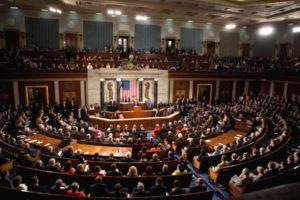FAA Authorization Extended Through December 31, 2023: Now What?


Image public domain
The U.S. Congress has passed the Continuing Appropriations Act, 2024 to avert a government shutdown and fund the government through November 17, 2023. Included was a measure to extend FAA Authorization – set to expire 9/30 – through December 31, 2023.
The House of Representatives Transportation and Infrastructure Committee Chairman Sam Graves (R-MO), Transportation and Infrastructure Committee Ranking Member Rick Larsen (D-WA), issued the following statement on the FAA Extension:
“Reauthorizing the FAA is vital to ensuring the safe and efficient operation of America’s aviation system. Though the House overwhelmingly passed a bill in July to reauthorize the FAA for five years, the Senate needs additional time to consider and reach final agreement on a multi-year FAA bill, thus, passing a short-term extension in order to ensure all FAA programs continue to function while negotiations continue is necessary. But make no mistake, enacting a long-term bill as soon as possible is a top priority, as a series of short-term extensions will be detrimental to the FAA, airport infrastructure improvements, and the aviation industry.”
The moves averted the potential of major disruption in the aviation sector: if the government shutdown had occurred along with the expiration of the FAA Reauthorization Bill of 2018, the compounding effect could have been dire as thousands of employees were furloughed and essential staff required to work without pay. While the extension solves the immediate problem of funding, it does not provide the roadmap of priorities and deadlines for the agency that a full 5-year FAA Reauthorization package offers.
While the House has passed a package, the Senate has struggled to get agreement on a number of issues. As other priorities crowd the schedule, stakeholders fear that a long term FAA Reauthorization may get pushed to the back burner. (The 2012 FAA Reauthorization took 5 years: there were 18 extensions before the 2018 FAA Reauthorization was passed.)
In addition, the Senate must confirm President Biden’s pick for FAA Administrator, Mike Whitaker, before he can take the position. The current Acting FAA Administrator, Polly Trottenberg, must by law vacate the seat on October 25, 2023.
Without a long term funding package, which comes with clear priorities and deadlines, and a long term leader, the FAA is handicapped in moving forward on the long-term work that must be done to ensure that advanced unmanned aircraft can be safely integrated into the NAS.
Michael Robbins, Chief Advocacy Officer of leading drone advocacy organization AUVSI, made the following statement:
“AUVSI calls on Congress to break the current stalemate holding up the advancement of the five-year FAA Reauthorization and come together to finalize a multi-year bill that enhances safety and access for all users of the national airspace system.
Advanced aviation holds immense promise to provide safety, economic, workforce, and environmental benefits — but U.S. companies in the drone and Advanced Air Mobility industries need more regulatory progress and clarity. Short-term FAA extensions create burdens for both the FAA and the industry. Congress must provide stability to emerging industries and retain global aviation leadership by swiftly passing a multi-year FAA reauthorization.”
Miriam McNabb is the Editor-in-Chief of DRONELIFE and CEO of JobForDrones, a professional drone services marketplace, and a fascinated observer of the emerging drone industry and the regulatory environment for drones. Miriam has penned over 3,000 articles focused on the commercial drone space and is an international speaker and recognized figure in the industry. Miriam has a degree from the University of Chicago and over 20 years of experience in high tech sales and marketing for new technologies.
For drone industry consulting or writing, Email Miriam.
TWITTER:@spaldingbarker
Subscribe to DroneLife here.


